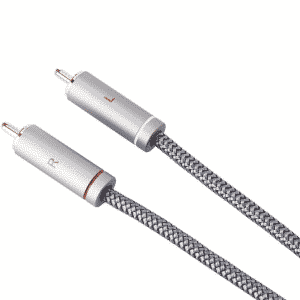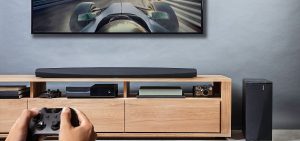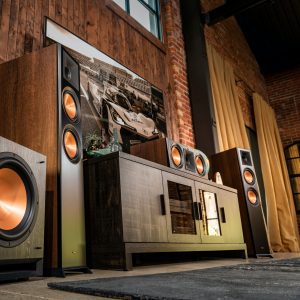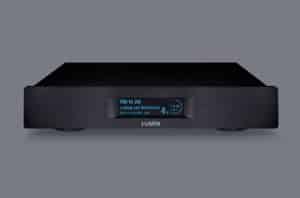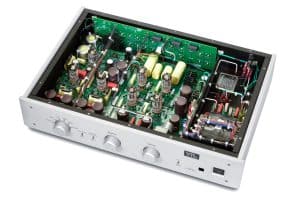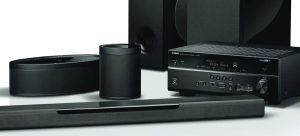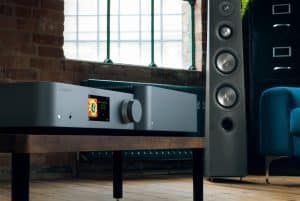As an avid gamer, the audio experience can make or break your gaming sessions. A good gaming headset can immerse you in the virtual world, allowing you to hear every subtle sound effect and dialogue with crystal-clear clarity. It can also give you a competitive edge by enabling you to pinpoint the location of your enemies based on the audio cues. Whether you’re a hardcore gamer or a casual player, investing in a high-quality gaming headset can significantly enhance your overall gaming experience.
Moreover, a good gaming headset can also serve as a valuable tool for content creators, streamers, and virtual meeting participants. The microphone quality can make a significant difference in the clarity and professionalism of your voice communications, ensuring that your audience or teammates can hear you loud and clear. Additionally, the comfort and ergonomics of a gaming headset can make long gaming or streaming sessions more enjoyable, reducing the risk of fatigue and discomfort.
With so many gaming headset options available on the market, it can be overwhelming to choose the right one that meets your specific needs and preferences. In this article, we’ll guide you through the essential factors to consider when selecting a good gaming headset, helping you make an informed decision that will elevate your gaming experience to new heights.
Factors to consider when choosing a gaming headset
When it comes to choosing a gaming headset, there are several key factors to consider to ensure that you make the right purchase. From sound quality and surround sound capabilities to comfort and microphone performance, each aspect plays a crucial role in determining the overall user experience. Let’s dive into the most important factors to consider when selecting a gaming headset.
Wired vs wireless gaming headsets
One of the primary decisions you’ll need to make is whether to go with a wired or wireless gaming headset. Both options have their own advantages and disadvantages, and the choice ultimately depends on your personal preferences and gaming setup.
Wired gaming headsets offer a reliable and consistent connection, eliminating the risk of latency or signal interference that can sometimes occur with wireless models. They also tend to be more affordable and may offer better sound quality, as the audio signal is directly transmitted through the cable. Additionally, wired headsets don’t require batteries, which can be a convenient feature for extended gaming sessions.
On the other hand, wireless gaming headsets offer the freedom of movement and the absence of tangled cables, which can be particularly beneficial for gaming setups with limited desk space or for gamers who prefer to move around during gameplay. Many wireless models also feature advanced features like Bluetooth connectivity, built-in microphones, and even noise-cancellation capabilities. However, wireless headsets may be more expensive and require regular battery charging or replacement, which can be an inconvenience for some users.
Ultimately, the decision between wired and wireless gaming headsets should be based on your specific needs, budget, and gaming environment. Consider factors such as the size of your gaming space, the importance of mobility, and your willingness to manage battery life or deal with cable management.
Surround sound and audio quality
One of the most crucial factors to consider when choosing a gaming headset is the sound quality and surround sound capabilities. The audio experience can make or break your gaming immersion, so it’s essential to prioritize headsets that deliver exceptional sound performance.
When it comes to surround sound, look for gaming headsets that offer true 7.1 or 5.1 surround sound capabilities. These advanced audio technologies can provide a more immersive and accurate spatial awareness, allowing you to pinpoint the location of enemies, gunfire, or other in-game sounds with greater precision. This can be particularly beneficial in competitive gaming scenarios, where the ability to quickly identify the source of audio cues can give you a significant advantage.
In addition to surround sound, pay attention to the overall audio quality of the headset, including the frequency response range, driver size, and sound profile. Ideally, you’ll want a headset that delivers a well-balanced and detailed audio experience, with clear highs, punchy lows, and a natural mid-range. Avoid headsets that prioritize bass over other frequency ranges, as this can lead to a muddy or overpowering sound that can detract from the overall gaming experience.
Consider the sound profile that best suits your gaming preferences and the types of games you play. For example, if you enjoy immersive, cinematic experiences, you may prefer a headset with a more expansive soundstage and rich, detailed audio. On the other hand, if you’re primarily focused on competitive gaming, a headset with a more precise and directional sound profile may be more beneficial.
Comfort and ergonomics
Comfort and ergonomics are essential factors to consider when choosing a gaming headset, especially if you plan to wear it for extended gaming sessions or during long streaming or content creation tasks. A comfortable and well-designed headset can make a significant difference in your overall user experience, reducing the risk of fatigue, headaches, or discomfort.
When evaluating the comfort and ergonomics of a gaming headset, pay attention to the following key features:
- Headband design: Look for a headband that is well-padded and adjustable, ensuring a secure and comfortable fit on your head.
- Ear cup size and shape: The ear cups should be large enough to comfortably accommodate your ears, with soft, breathable materials that minimize heat buildup and pressure points.
- Weight and balance: A lightweight headset with a well-balanced design can help prevent neck strain and fatigue during prolonged use.
- Adjustability: Look for headsets that offer multiple points of adjustment, such as swiveling ear cups or a flexible headband, to ensure a personalized and customized fit.
Additionally, consider the overall construction and materials used in the headset. High-quality, durable materials like metal and premium plastics can contribute to a more comfortable and long-lasting user experience, while cheaper, flimsy materials may lead to discomfort and premature wear and tear.
It’s important to note that comfort is highly subjective, and what feels comfortable for one person may not be the same for another. If possible, try on the headset or look for opportunities to test it out before making a purchase to ensure that it meets your individual comfort needs.
Microphone quality and noise cancellation
In addition to sound quality and comfort, the microphone performance of a gaming headset is another crucial factor to consider, especially if you engage in online multiplayer, streaming, or virtual meetings. A high-quality microphone can ensure that your voice is heard clearly and accurately, while also reducing background noise and interference.
When evaluating the microphone performance of a gaming headset, look for the following features:
- Noise-cancellation technology: Advanced noise-cancellation features can help filter out ambient sounds, such as keyboard clicks, fan noise, or background chatter, ensuring that your voice is the primary focus.
- Microphone sensitivity and pickup pattern: The microphone should be sensitive enough to capture your voice clearly, with a pickup pattern that is optimized for close-range communication.
- Flexible positioning: A microphone that can be easily adjusted and positioned close to your mouth can help improve the overall audio quality and clarity.
- Mute and volume controls: Convenient mute and volume controls on the headset can allow you to quickly manage your audio settings during gameplay or streaming sessions.
In addition to the microphone itself, consider the overall audio processing capabilities of the headset. Some models may offer advanced features like voice enhancement, equalization, or even built-in audio software that can further improve the quality of your voice communications.
By prioritizing microphone performance and noise-cancellation capabilities, you can ensure that your gaming headset not only provides an immersive audio experience but also enables clear and effective communication with your teammates, audience, or virtual meeting participants.
Compatibility with gaming platforms
When choosing a gaming headset, it’s essential to consider the compatibility with the gaming platforms you use, whether it’s a PC, console, or mobile device. Ensuring that your headset is compatible with your primary gaming setup can help avoid compatibility issues and ensure a seamless user experience.
Some key factors to consider when evaluating the platform compatibility of a gaming headset include:
- Connectivity options: Determine the type of connection required by your gaming platform, such as USB, 3.5mm audio jack, or wireless connectivity, and ensure that the headset supports the appropriate interface.
- Platform-specific features: Some gaming headsets may offer platform-specific features or optimizations, such as surround sound or audio processing software, that are only available on certain platforms. Make sure the headset you choose is compatible with the features you desire.
- Multi-platform support: If you game across multiple platforms, look for a headset that offers cross-platform compatibility or the ability to easily switch between different devices.
- Console-specific requirements: Certain gaming consoles, such as PlayStation or Xbox, may have specific compatibility requirements or certifications that you should consider when selecting a headset.
By carefully evaluating the platform compatibility of a gaming headset, you can ensure that it will integrate seamlessly with your existing gaming setup and provide a consistent, high-quality audio experience across all your devices.
Price range and budget considerations
When it comes to choosing a gaming headset, the price range and your overall budget are important factors to consider. Gaming headsets can vary significantly in price, from budget-friendly options to high-end, premium models with advanced features and specifications.
It’s important to strike a balance between your budget and the features and performance you require. While it’s tempting to go for the most expensive headset on the market, it may not always be necessary to spend a significant amount to get a good quality gaming headset that meets your needs.
When setting your budget, consider the following:
- Your gaming needs and priorities: Determine the most important features for your gaming experience, such as sound quality, surround sound, microphone performance, or comfort, and allocate your budget accordingly.
- Your gaming platform and setup: The compatibility and connectivity requirements of your gaming platform may influence the price range of the headset you need to consider.
- Your overall gaming and streaming/content creation setup: If you plan to use the headset for both gaming and content creation, you may need to invest in a higher-quality model to meet the demands of both use cases.
- Long-term value and durability: While a more expensive headset may be a significant investment upfront, it may offer better build quality, longer-lasting performance, and a higher return on your investment in the long run.
By carefully considering your budget and aligning it with your specific gaming needs and preferences, you can find a high-quality gaming headset that provides an exceptional user experience without breaking the bank.
Popular gaming headset brands and models
When it comes to choosing a good gaming headset, there are several well-known and respected brands that have established themselves as leaders in the industry. These brands offer a wide range of headset models, each with their own unique features and specifications to cater to different gaming preferences and budgets.
Some of the most popular gaming headset brands include:
- Razer: Known for their innovative and high-performance gaming peripherals, Razer offers a diverse range of gaming headsets that cater to both casual and professional gamers.
- Logitech: A trusted name in the gaming and technology industry, Logitech provides a wide selection of gaming headsets that prioritize sound quality, comfort, and versatility.
- SteelSeries: Renowned for their exceptional audio performance and cutting-edge features, SteelSeries gaming headsets are a favorite among esports professionals and hardcore gamers.
- Corsair: Offering a blend of premium build quality, advanced audio technologies, and sleek designs, Corsair’s gaming headsets are a popular choice for PC gamers.
- HyperX: A subsidiary of Kingston Technology, HyperX is known for its high-quality and affordable gaming headsets that deliver impressive sound and comfort.
Within each of these brands, you’ll find a variety of gaming headset models that cater to different budgets and feature sets. Some popular examples include the Razer Blackshark V2 Pro, Logitech G Pro X Wireless, SteelSeries Arctis Pro, Corsair Virtuoso RGB Wireless, and HyperX Cloud II.
When researching and comparing these popular gaming headset models, pay attention to factors such as sound quality, surround sound capabilities, microphone performance, comfort, and compatibility with your gaming platforms. Additionally, consider reading reviews from trusted sources to get a better understanding of the real-world performance and user experiences of these headsets.
By familiarizing yourself with the leading gaming headset brands and models, you can make a more informed decision that aligns with your specific gaming needs and budget, ensuring a truly immersive and enjoyable gaming experience.
Conclusion: Making the right choice for your gaming needs
Choosing the right gaming headset can be a daunting task, but with the right information and considerations, you can find the perfect headset that will elevate your gaming experience to new heights. Whether you’re a casual gamer, a professional esports player, or a content creator, the key is to identify the features and specifications that are most important to you and your gaming setup.
By carefully evaluating factors such as sound quality, surround sound capabilities, comfort, microphone performance, and platform compatibility, you can narrow down your options and make an informed decision that will provide you with the best value for your money. Remember, the right gaming headset is not just about the brand or the price tag, but rather the features and user experience it offers.
Take the time to research and compare different gaming headset models, read reviews from trusted sources, and, if possible, try them out before making a purchase. This will help you ensure that you choose a headset that not only meets your current gaming needs but also has the potential to grow with you as your gaming skills and preferences evolve.
Ultimately, the best gaming headset is the one that provides you with an immersive, comfortable, and high-quality audio experience, allowing you to fully immerse yourself in the virtual world and gain a competitive edge. By following the guidance provided in this article, you’ll be well on your way to finding the perfect gaming headset that will take your gaming experience to new heights.

TELEVISIONS

SOUNDBARS

TURNTABLES & VINYL

HEADPHONES
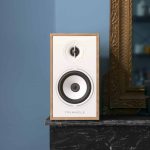
SPEAKERS
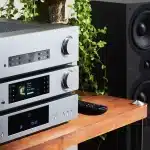
STEREO COMPONENTS

AV COMPONENTS

PROJECTORS

BLUETOOTH SPEAKERS

CABLES & ACCESSORIES

BRACKETS & STANDS

Non classé
![]() !!!!CALL US FOR YOUR SPECIAL PRICES NOW!!!!
!!!!CALL US FOR YOUR SPECIAL PRICES NOW!!!!![]() !!!! CANADIAN OWNED AND OPERATED !!!!
!!!! CANADIAN OWNED AND OPERATED !!!!









